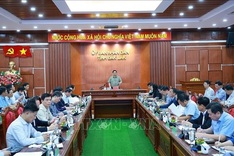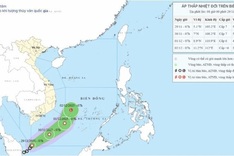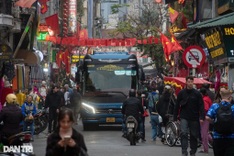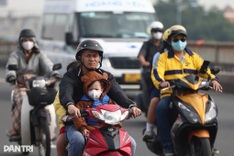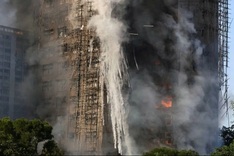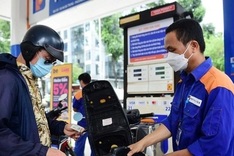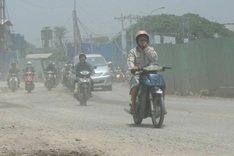
Motorbikes on a street in Hanoi.
Hanoi authorities are developing a support mechanism to help residents trade in petrol-powered motorbikes for electric ones, in preparation for a complete ban on fossil fuel vehicles within Ring Road 1 starting from July 2026.
On July 14, Deputy Chairman of the Hanoi People’s Committee Duong Duc Tuan told local media that the city is reviewing plans to assist the conversion of approximately 450,000 petrol motorbikes currently operating within the Ring Road 1 area.
The proposed support policy will be tailored based on user groups and vehicle types. It aims to cover nearly all conversion-related costs, including registration and license plate fees for new electric motorbikes. The plan will be submitted to the City Party Committee and the People’s Council for approval.
Alongside this vehicle conversion initiative, Hanoi is investing in green transport infrastructure to meet travel needs in the restricted area. The city plans to expand electric bus fleets, including 8 to 12-seat mini buses and 4-seat electric cars for inner-city transit. Ongoing development of urban rail systems, such as the Cat Linh–Ha Dong and Nhon–Hanoi Station lines, will also support the transition, with future routes like West Lake–Hoa Lac and Nam Thang Long–Tran Hung Dao underway.
Charging infrastructure for electric cars and motorbikes will be added across the city, with priority given to parking facilities, residential buildings and transport hubs.
Tuan stressed that Hanoi is committed to offering maximum support to the right users, both residents and regular commuters in the Ring Road 1 area, to ensure a smooth transition.
Also on July 14, Hanoi formed an inter-agency task force to advise the People’s Committee on implementing green transport initiatives and expanding electric vehicle charging networks.
Under Directive No. 20 issued on July 12, the Prime Minister has instructed Hanoi to enforce a roadmap banning fossil fuel-powered motorbikes in central areas from mid-2026, and expand low-emission zones citywide by 2030.
Specifically, from July 1, 2026, petrol motorbikes will be banned from Ring Road 1. From January 1, 2028, restrictions will extend to Ring Road 2, banning motorbikes and limiting private petrol cars. By 2030, the low-emission zone will reach Ring Road 3.
The directive also requires Hanoi to introduce incentives for vehicle switching and public transport use by September 30. Support policies for manufacturers and assemblers of clean-energy vehicles are also mandated.
Starting from the third quarter of 2025, the city will consider raising registration fees, license plate issuance charges and parking costs in central areas for fossil fuel vehicles.
Hanoi currently has more than 9.2 million vehicles, including around 1.1 million cars and 6.9 million motorbikes registered locally. Another 1.2 million vehicles from surrounding provinces travel regularly within the city.


